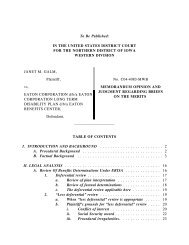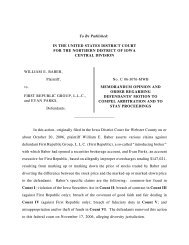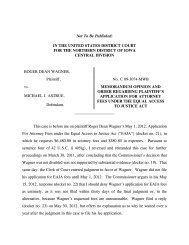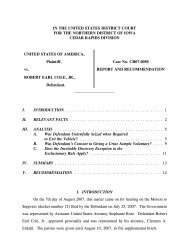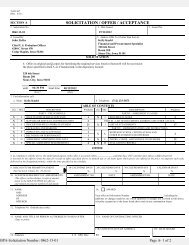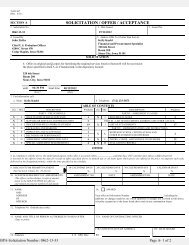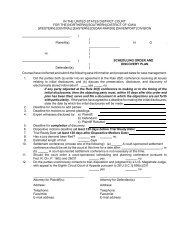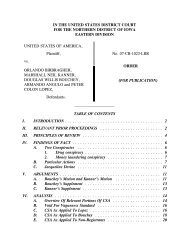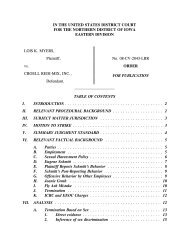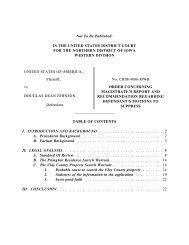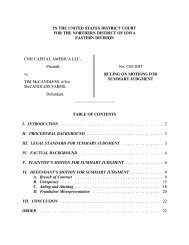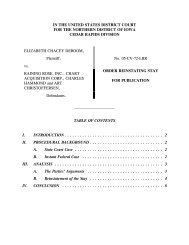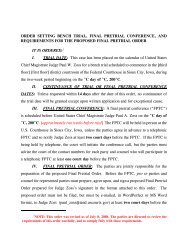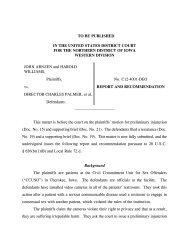Shannon v. Koehler - Northern District of Iowa
Shannon v. Koehler - Northern District of Iowa
Shannon v. Koehler - Northern District of Iowa
Create successful ePaper yourself
Turn your PDF publications into a flip-book with our unique Google optimized e-Paper software.
question <strong>Shannon</strong> about his “felony conviction,” even if the nature <strong>of</strong> the crime itself is<br />
inadmissible.<br />
Rule 609(a)(1) provides in pertinent part:<br />
For the purpose <strong>of</strong> attacking the character for truthfulness <strong>of</strong><br />
a witness, (1) evidence that a witness other than an accused has<br />
been convicted <strong>of</strong> a crime shall be admitted, subject to Rule<br />
403, if the crime was punishable by death or imprisonment in<br />
excess <strong>of</strong> one year under the law under which the witness was<br />
convicted, and evidence that an accused has been convicted <strong>of</strong><br />
such a crime shall be admitted if the court determines that the<br />
probative value <strong>of</strong> admitting this evidence outweighs its<br />
prejudicial effect to the accused . . . .<br />
FED. R. EVID 609(a)(1). <strong>Shannon</strong>’s 2011 conviction for Operating While Intoxicated,<br />
Third Offense, is a class D felony, see Defendants’ Exhibit 1011, punishable by a prison<br />
sentence up to five years, 16 and thus falls squarely within 609(a)(1).<br />
Still, the question remains whether I should exclude the conviction, or at least its<br />
nature, under Rule 403. In the case <strong>of</strong> an accused in a criminal trial, Rule 609(a)(1)<br />
modifies the language <strong>of</strong> the Rule 403 balancing test to tip the scales in favor <strong>of</strong> exclusion.<br />
FED. R. EVID. 609(a). In contrast, where, as here, the witness is not an accused, evidence<br />
<strong>of</strong> a conviction is subject to the standard Rule 403 test, which only excludes evidence if<br />
“its probative value is substantially outweighed by the danger <strong>of</strong> unfair prejudice.” FED.<br />
R. EVID. 403. “Evidence is unfairly prejudicial in the Rule 403 sense not simply because<br />
it hurts a party’s case; rather, evidence is unfairly prejudicial when it would influence the<br />
jury to decide the case on an improper basis.” Cummings, 995 F.2d at 824 (citations<br />
omitted). Regarding the probative value <strong>of</strong> a felony conviction, Rule 609 reflects the<br />
“proposition that one who has transgressed society’s norms by committing a felony is less<br />
16 IOWA CODE § 321J.2.<br />
42



